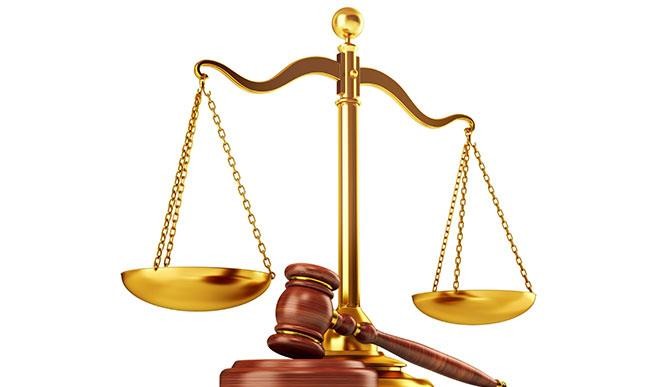Stay of proceedings in criminal matters: To be or not to be
I have read and watched, with incredulity, the needless hoopla and rocus generated by the Supreme Court’s ruling staying further proceedings in the Saraki trial before the CCT. Some lawyers who disagreed with the ruling, have, surprisingly in very scathing language, denigrated and tongue lashed the apex court, almost in the manner a headmaster would, […]


I have read and watched, with incredulity, the needless hoopla and rocus generated by the Supreme Court’s ruling staying further proceedings in the Saraki trial before the CCT. Some lawyers who disagreed with the ruling, have, surprisingly in very scathing language, denigrated and tongue lashed the apex court, almost in the manner a headmaster would, of a kindergarten’s puerile behavior. That should not be so.
Sure, we can disagree with decisions of the Supreme Court, even criticize them. But the language must be moderate, temperate and decorous. But, to describe a decision by the Supreme Court as illegal, brazen and bizarre, is, to me, descending into the realm of uninformed mob hysteria unbefitting of learned members of the noble profession. Such a stance may unwittingly intimidate or browbeat the apex court into submission; and were this to happen, then it’s good bye to the independence and sanctity with which the apex court is held.
Origin of the caustic criticisms
What has irked these critics is that the Supreme Court committed “illegality” in a bizarre manner (never heard of a court, let alone the Supreme Court, committing illegality!). It may err in its judgment or ruling, but certainly cannot be accused of illegality.
Surely, as Justice Cardoso once postulated, the prophesy of what the courts will do and nothing more pretentious, is what is meant by law. Thus, law when enacted, remains law on paper, inanimate and bony, until it is animated with the luminous flesh of interpretation. That is why it remains solely within the realm of courts to interpret the law (section 6, 1999 Constitution, as altered).
The ACJA
Section 306 of the Administration of Criminal Justice Act (ACJA), 2015, provides laconically thus: “an application for a stay of proceedings in respect of a criminal matter before the court shall not be granted”. The lucidity and clarity of this prosaically worded provision is too obvious to admit of any ambiguity or hair splitting.
It must be noted that the trial of Saraki which is currently before the CCT, is not before the Supreme Court of Nigeria. What is before the apex court is an appeal from the decision of the Court of Appeal pertaining to jurisdiction of the CCT alone. From the plain wording of section 306, the ACJA does not apply to the Supreme Court of Nigeria, or any other appellate court for that matter, but to the CCT.
Accused’s right of appeal
The law remains that an accused’s right of appeal is a constitutional right, which cannot be abated, compromised, whittled down, or nimbled at. While section 233 (2) (a) of the 1999 Constitution provides that an appeal shall lie from the decisions of the Court of Appeal to Supreme Court as of right where the ground of appeal involves questions of law alone, decisions in any civil or criminal proceedings before the Court of Appeal, section 241 (1) (a) provides for similar provisions in respect of appeal from the Federal High Court, National Industrial Court, High Court of a State, High Court of the FCT, Abuja, Sharia Court of Appeal, etc. an appeal under the Constitution could therefore be interlocutory or substantive.
The Supreme Court in the case of Eyesan v. Sanusi (1984) LPELR-1185 (SC), warned that the “right of appeal to the Court of Appeal is a constitutional right exercisable by a party in a civil case. See section 222(a) and (b) of the 1979 Constitution. The right exercisable against another person who has complaints touching his civil rights and obligations against another person, government under section 236 (1) of the 1979 Constitution. Once the exercise of this right of action has commenced, the exercise is not completed until the action is finally and completely determined by the court of 1st instance or the appeal court.”
The right of appeal which was preserved by the Supreme Court in the stay of proceedings in the Saraki case is thus sourced directly from the Nigerian Constitution, not from the ACJA, a mere inferior Statute. It is common knowledge that the Constitution is the supreme Law, and is superior to any other legislation. And where the provisions of any other law are inconsistent with the provisions of the Constitution, such law will be void to the extent of such inconsistency”. (section 1(3) of the 1999 Constitution). See the Supreme Court cases of The State v. Femi Oladotun (2011) LPELR 3226 (SC). N.E.M.G.I.A. v. J.O. Uchay (2011) LPELR-1961 (SC).
Now this
Outlawing ouster clauses
Ex abundante cautela, section 4(8) of the 1999 Constitution (as altered), specifically provides that “the National Assembly or a House of Assembly shall not enact any law, that ousts or purports to oust the jurisdiction of a court of law or of a judicial tribunal established by law.” To the extent that section 306 of the ACJA purports to oust the jurisdiction of the court from entertaining interlocutory appeals, such as stay of proceedings, it is to that extent void.
The powers of the Supreme Court to decide a case to finality
